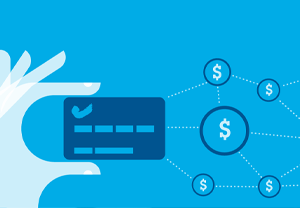
March 7th is “Slam the Scam” Day! Help protect your accounts by learning how to spot a scam, how to deal with scammers, and what to do in the event you become the victim of a scam.
Scam Warning Signs
Learning to recognize the signs of a scam is the first step in stopping scammers from achieving their goals. Scams can work in many different ways, but they often share these common tactics:
- Someone (a scammer) contacts you, pretending to be from a business, agency, or organization you know and trust.
- They do this to gain your trust, and may claim to work for your bank or credit union, an online marketplace, or a government agency like the IRS or Social Security Administration.
- They may spoof known phone numbers for the person or organization they are impersonating.
- The scammer says there is a problem or a prize.
- This tactic provides an incentive for potential victims to continue communicating with them.
- The scammer pressures you to act immediately.
- They may use threats of legal action or seized funds, or flip the script and claim that prizes or offers are only available for a limited time.
- The scammer requests private information and/or tells you to pay in a specific way.
- Providing them with usernames, passwords, and security codes can grant them access to your accounts.
- Paying them with wire transfers, cryptocurrency, or gift cards can make it difficult – if not impossible – to recover your funds.
How to Avoid a Scam
If you receive a suspicious call, text, email, social media message, or letter from someone claiming to be from your bank or credit union, an online marketplace, or a government agency like the IRS or Social Security Administration:
- Stay calm. Scammers rely on eliciting emotional responses to coerce their victims to do things they wouldn’t normally do.
- Hang up the phone or ignore the message. If you receive a suspicious call, hang up and call the business or organization back on a publicly published phone number. If you received an email or text message, do not open attachments or click on any links.
- Protect your accounts and information. Do not provide personal information or account details in response to the call, text, or email. Do not obtain gift cards or cryptocurrency, or make wire transfers at the request of the caller.
- Spread the word. Talking to family, friends, and neighbors about common scams is a great way to educate others and protect your community.
What to Do if You Were Scammed
- Do not communicate with the scammer. Do not talk to them or respond to their messages. They may promise to return your funds if you take additional action or give them more information. Do not do this! They are simply trying to perpetuate the scam.
- If you sent payment(s) or gave out account information, contact your bank or credit union. While funds you sent may no longer be recoverable, your financial institution may be able to recoup some of your losses, as well as help secure your accounts.
- If you gave out personal identification information, contact the Federal Trade Commission and the major credit bureaus. You can visit www.ftc.gov/idtheft or call 877-ID-THEFT (877-438-4338) for more information or to contact the FTC. You may wish to notify the three major credit bureaus (Equifax, Experian, and TransUnion) to add a fraud alert to your credit report.
More Fraud Resources
Learn more about protecting yourself from scams and reporting scams through the links below.
- SSA Scams: https://www.ssa.gov/scam/
- IRS Scams: https://www.irs.gov/newsroom/tax-scamsconsumer-alerts
- Identity Theft: https://consumer.ftc.gov/features/identity-theft



